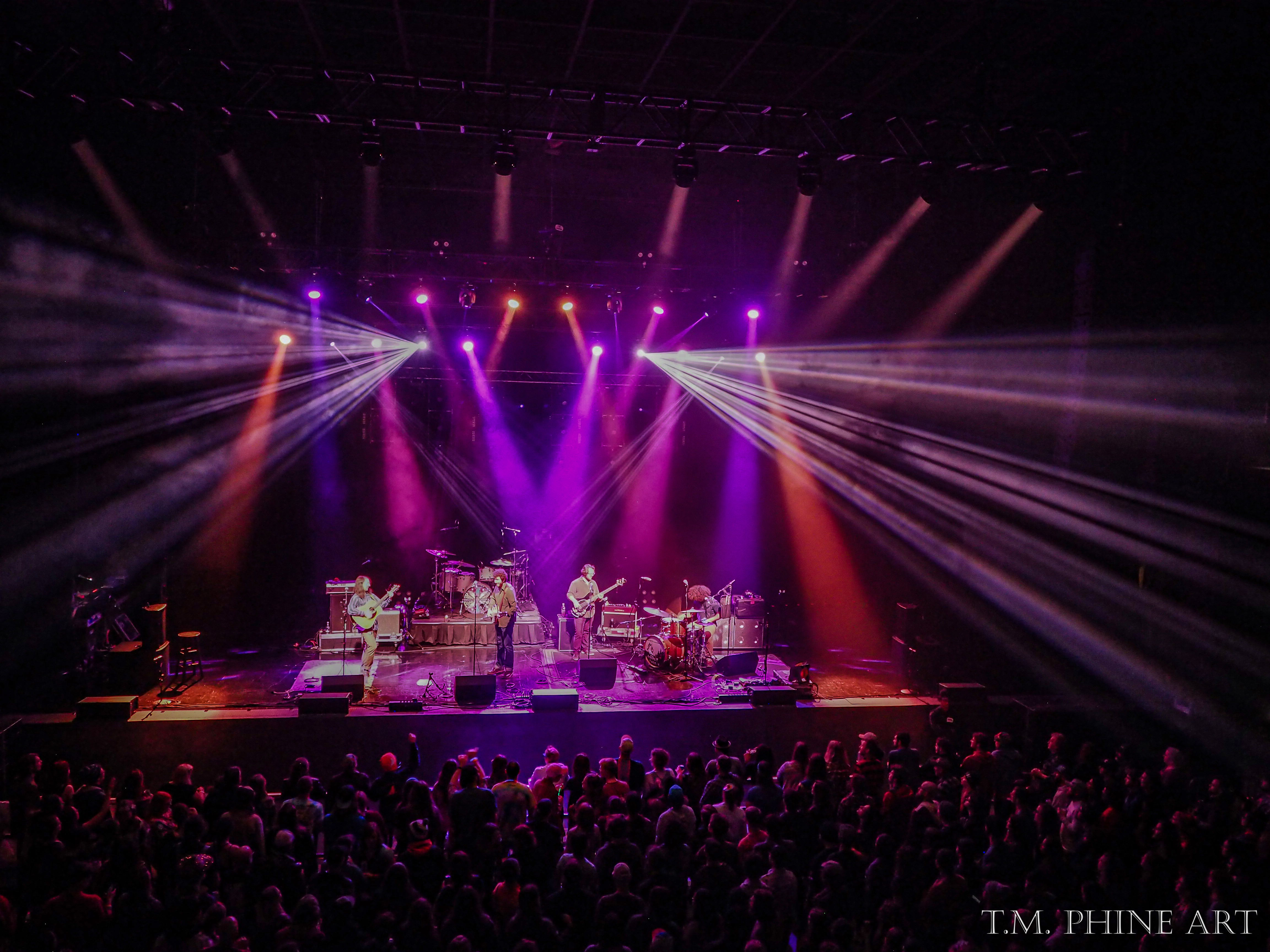
Armchair Boogie
by Tony MuellerArmchair Boogie opened for Pigeons Playing Ping Pong at the Sylvee

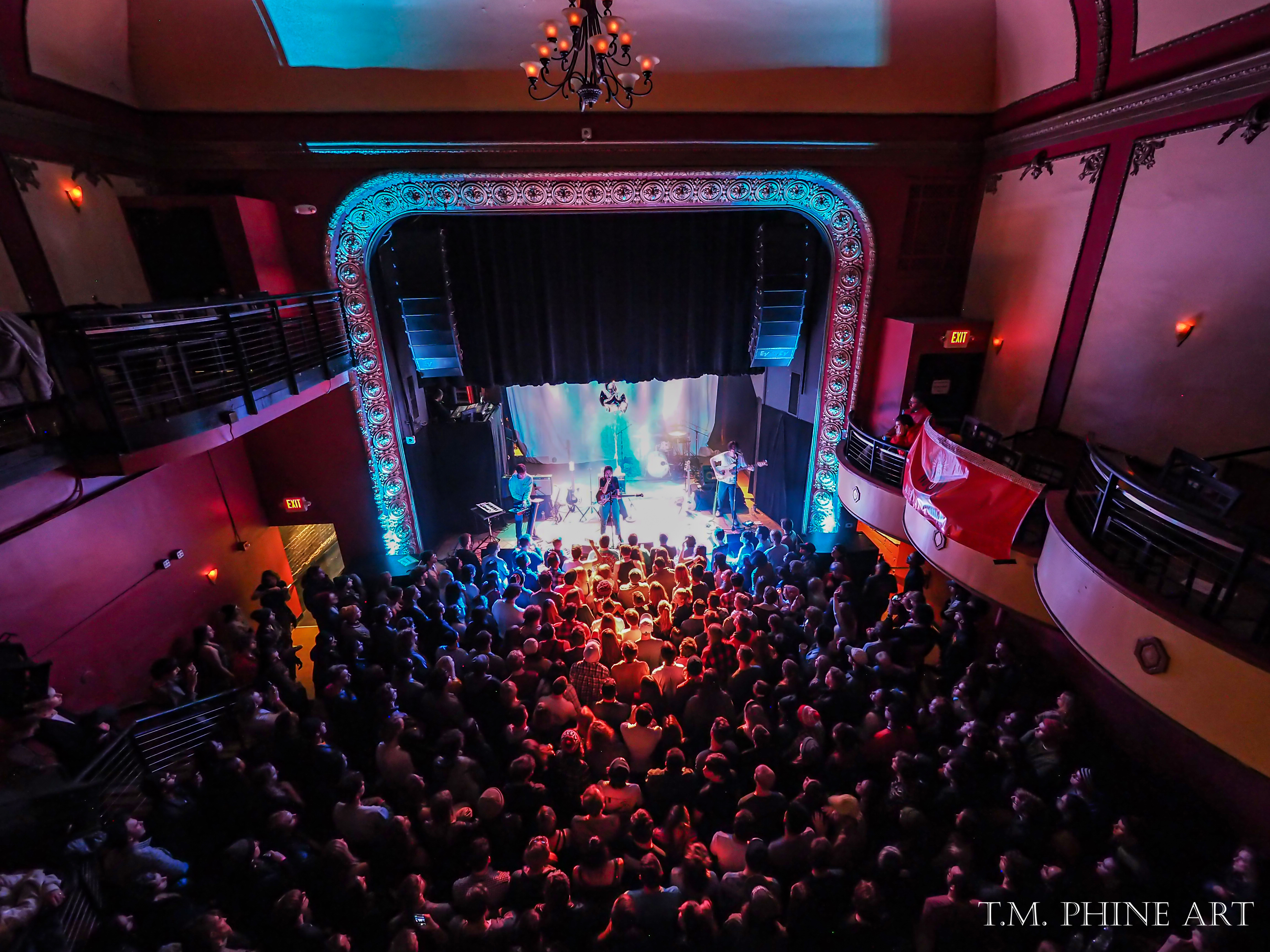
Crumb showcased their new album at the beautiful Majestic Theater in downtown Madison.
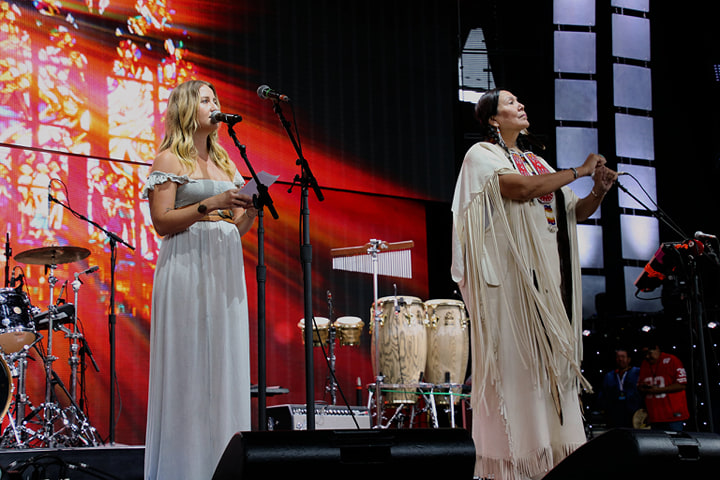
Nestled in the very type of community they set out to support, this year’s Farm Aid at Alpine Valley Music Theater in East Troy, WI had many stories to tell, but none so on point as one with one of its musical participants, Margo Price. Herself a product of a farm family that experienced firsthand the economic downturn of Family farms struggling to survive in the face of corporate competition, Ms Price attended the press conference, opened the festivities singing, “This Land Is Your Land,” alongside Native American dancers, sat on a panel focused on stress among farmers and then gave a kickass performance that had a rock choir’s fire and country-gospel tenderness. No surprise then to find her back on stage at the end of the night singing with Willie and family, clutching her newborn who wore the cutest pink ear protectors.
Family really sits at the heart of Farm Aid; from the sons, fathers and cousins that populated the stage to the artists who supported each other performances. As a mid-afternoon high point, Lukas Nelson had the Night Sweats’ brass, songbird Margo Price and British sensation Yola singing back-up, Particle Kid on guitar and his drummer’s son, half the size of his electric guitar, throwing devil horns and enjoying every minute in the limelight. Many performers mentioned returning time and time again to play Farm Aid, donating their services to the cause and reuniting with old friends whose mutual admiration is palatable as voices soared and roared and guitar licks ripped and ricocheted filling the ears and feeding the soul.
During Price’s time on the panel she talked about the concerns musicians and farmers share regarding stress, mentioning the lack of health insurance and mental health resources, the economic uncertainty and burdened family dynamics. Wisconsin lost almost 700 dairy farms in 2018 and 2019 is on pace to be even worse. Hit by tariffs, seed patents and extreme weather, farmers nation-wide suffer as does the land they tend. Currently, the U.S. farm rescue is more than twice as expensive as the 2009 bailout of Detroit’s Big Three automakers, which cost taxpayers $12 billion. 34 years ago Farm Aid was about bankruptcy and foreclosures, today it is about sustainability and the future. Despite the bleak economic forecast and the relentless drizzle that beat down on the sold-out show, the vibe was downright happy. “Buy Local Food,” “take care of the people who take care of us,” “reconnect to the earth,” the sense of active community went from the human ridge that helped people across a particularly slippery hillside with calls of, “Come up high, come up high,” to the food stand helping out their local marching band by selling one of the tastiest cheeseburger and fries I’ve ever devoured.
This year’s line-up included a slew of exceptionally strong songwriters playing their tunes and honoring their influences, covering Crosby Still and Nash, Elton John and the Talking Heads; building from country-blues roots, the fifteen bands covered soul, rock, honky-tonk, funk and folk. From Neil Young playing, “Heart of Gold,” and giving you a piece of his mind to John Mellencamp admonishing the crowd for missing the second verse of, “Jack and Diane,” Tanya Tucker singing the hell out of, “Delta Dawn,” and a recovering Willie Nelson opening with, “Whiskey River,” Farm Aid 2019 created good vibes, lasting memories celebrating the year-long efforts to promote a cleaner, healthier world.
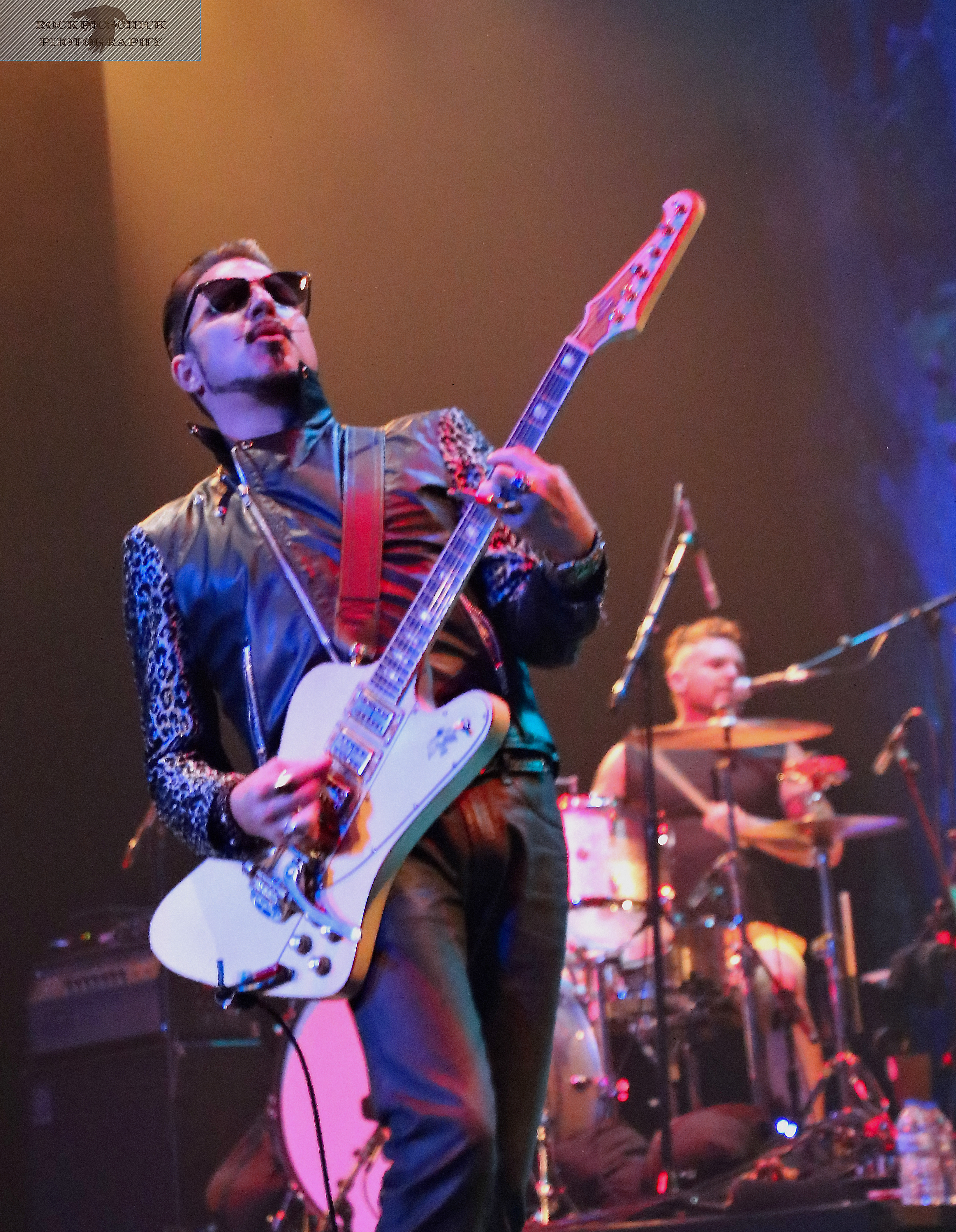
Rival Sons bring Feral Roots to Pabst
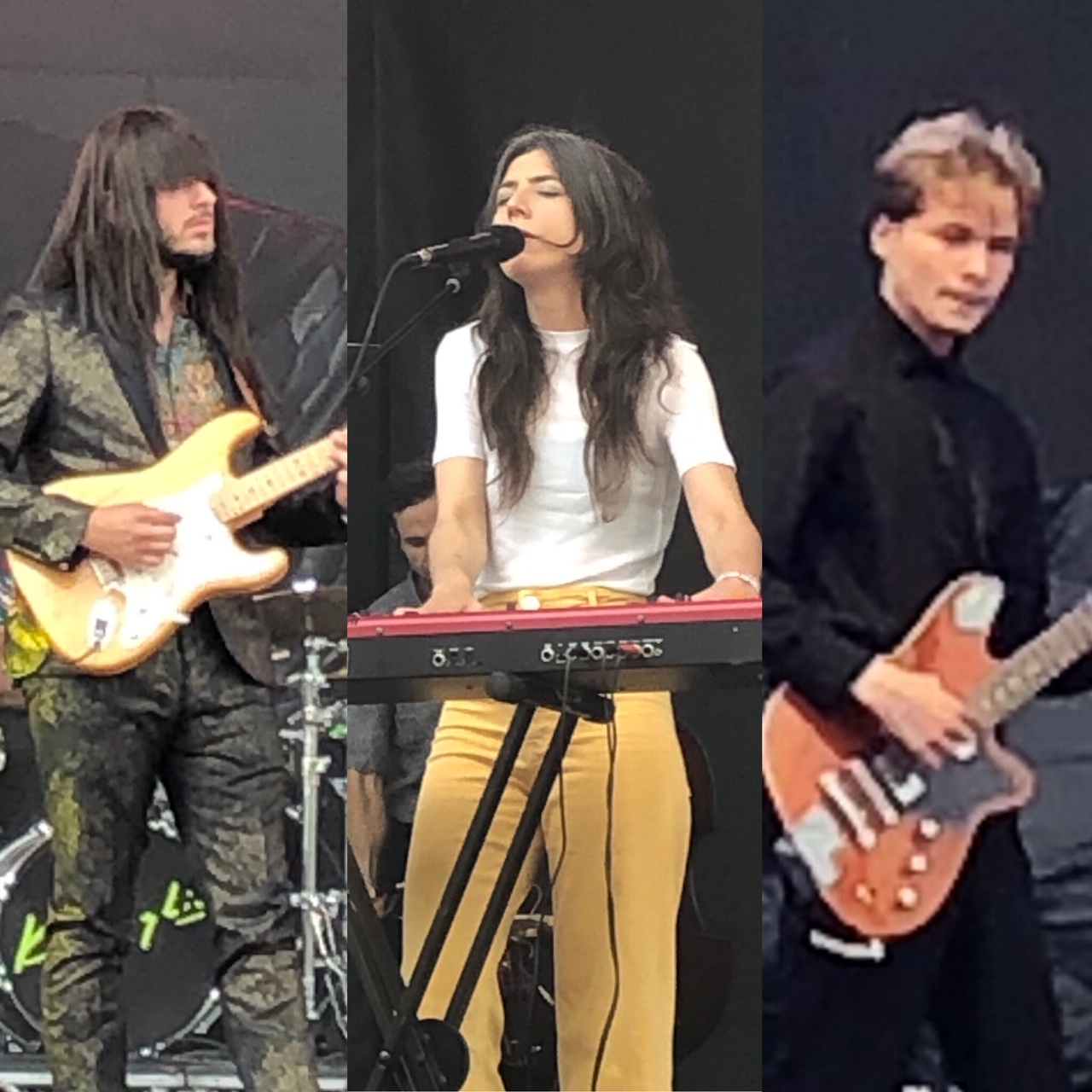
I went to this year’s Chicago Pitchfork in hopes of finding something new. My first time back since 2016, it soon became apparent how much the city had infiltrated and influenced the festival. Windy city artists as diverse as sizzling knob-twiddlers Bitchin Bajas, ultra-smooth DJ Valee, gospel legend Mavis Staples and sunshine folk-rockers Whitney populated all three stages. Fifteen young poets from Young Chicago Authors’ Louder Than a Bomb festival spoke volumes in their short performances between bands on the Blue Stage. Native son Ric Wilson brought the bombastic Lane Tech High School marching band, adopted daughter Lala Lala’s Lillie West fleshed out her stage with hometown aces Sen Morimoto, Kaina Castillo, Nnamdi Ogbonnaya and Vivian McConnell and goofball synth-pop duo Grapetooth brought their entire posse on stage to close out their set. The tribal vibe was infectious, and it was great seeing and hearing Chicago represented on so many different levels.
There was glitz and there was grit; rappers, rockers, jazzbots and funkateers. Ferocious commotion from a shadowy, sumptuous Low, a mad jagged black midi and intergalactic magicians The Great Black Music Ensemble stood shoulder to shoulder with chic sophistication from art-pop surrealist Cate LeBon, cool subversive disconauts Stereolab and multi-lingual groovologists Ibeyi. There were national acts and international acts, from Texas’ exquisite fusionists Khruangbin and D.C.‘s sleek Flasher to England’s hip hip-hop icon Neneh Cherry and Japan’s theatrical kitsch ambassadors CHAI. Each night’s headliners united generations, delivering baby boomers, The Isley Brothers, Gen Xers, Haim and millennials Robyn. All in all Pitchfork seem to cover all its bases, but did any of it qualify as new?
What does new really mean, anyways? Rising stars? Break-through performances? Beyond the aforementioned events Pitchfork hosted alt-pop balladeer Jay Som introducing new songs from her forthcoming album, indie-rocker Snail Mail brought R&B chanteuse Clairo on stage after having fellow spitfire Soccer Mommy sing the night before at an after show and boppy iconoclasts Belle and Sebastian played their classic, “If You’re Feeling Sinister,” from front to back. Premieres, spontaneous collaborations; these are never before heard moments, but are they new? Quite a few Pitchfork artists are devilishly good at updating fertile traditions, adding new spins on old ideas like Standing On The Corner or infusing fresh energy to well-worn forms like Rico Nasty, but what about new music, daring, different music? Did Pitchfork deliver its promise of a hipster getaway where cutting edge met popular culture?
The answer is a resounding yes! Personally, electro-classical maverick Julia Holter, insurgent black midi and tasty Khruangbin opened my eyes, pricked my ears and punched me in the gut with their new takes melting delicious licks and wily styles into a unique musical hybrid that stood on its own. Each year I attended I came away with new groups to follow and a renewed hope for a bright musical future. 2019 was no exception and primed the pump until next year when I anxiously look forward to discover what Pitchfork Chicago deems in, important and new.
Partners: Rökker Vodka